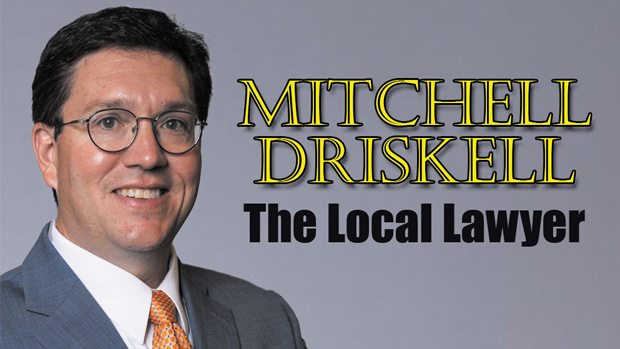
This Lawyer Sued Pop-Tarts
In October, New York lawyer Spencer Sheehan sued Kellogg’s over strawberry Pop-Tarts claiming that they contain just as much apple and pear as strawberries. Before that, he sued Keebler and Betty Crocker over their “fudge” cookies and baking mixes that contain no milkfat, an essential ingredient of fudge. He has filed over 100 vanilla lawsuits each alleging that consumers have been tricked by companies marketing “vanilla” products that contain little to no actual vanilla bean.
Sheehan has filed more than 400 lawsuits targeting products on almost every aisle of the grocery store, all alleging that corporations are misleading consumers with claims on advertising and packaging. He filed suit against Frito-Lay alleging it didn’t use enough real lime juice in its “Hint of Lime” Tostitos. He accused Coors of suggesting its pineapple-and-mango-flavored Vizzy Hard Seltzers did not have as much Vitamin C as Coors claimed. He said Snack Pack pudding—which is advertised as being “made with real milk”—misled consumers because it is made with fat-free skim milk.
And that was just in May, 2021. He files about three of these suits a week. He is single-handedly responsible for a spike in consumer class-action litigation. Most of Sheehan’s suits allege damages based on the “price premium theory,” which says that products are sold at higher prices than they would have otherwise commanded had the companies marketed them honestly. He generally asks for $5,000,000 in each case, to compensate consumers who paid more for their Pop-Tarts because they thought they were strawberry. Most companies settle rather than paying lawyers to defend these cases for years. Consumers usually receive little to no money from these lawsuits, but attorney’s fees are paid to Sheehan. Some consumer advocates applaud Sheehan’s work, some people consider it a complete waste of a law degree. You decide.
Did We Violate the Constitution? We Can’t Tell You.
Shortly after the attacks of 9-11, the government passed the Patriot Act that greatly expanded the authority of the FBI to monitor Americans. One surveillance project took place in Orange County, California where the FBI paid an informant for over a year to infiltrate a Mosque by posing as recent convert to Islam. The project uncovered no concerning activity.
In 2011, three of the men who the FBI spied on sued the FBI saying the FBI spied on them solely because of their Islamic faith, which if true, violates their constitutional rights. To prove their case, to prove the reason for the surveillance was purely religious, they need the tapes the informant recorded of their conversations. They claim that these tapes will show that no one talked about terrorism or anything that justified surveillance. They claim that the tapes will show that they were scared of the informant because the informant kept bringing up terrorism (and, in fact, one of the members of the Mosque called the FBI during the surveillance project and reported the informant as a possible terrorist).
The Muslim men claim that the tapes will prove that they were regular people targeted because of their religion. The FBI says, you can’t have the tapes; therefore, you can’t prove your case, i.e. we win. Last week, the Supreme Court heard oral argument in this case, Federal Bureau of Investigation v. Fazaga, on this issue of whether the FBI can raise the “State’s Secret Privilege” to keep the contents of the tapes secrete just because they say so. The Privilege allows the state to protect information that would jeopardize national security and allows the State to shield that information from even being reviewed. The Muslim men are merely arguing that they are entitled to a private review of the information at the Courthouse and the opportunity to argue why the information is not entitled to secrecy. As it stands now, they are not even allowed to listen to the tapes. Their lawyers are not allowed to listen to the tapes in a safe-room where duplication would be impossible. A Judge is not allowed to second guess the FBI and determine that the information is harmless. Once the FBI claims State’s Secret, it is over, and this case aims to change that. The FBI argues that once the information is released, no matter how private the environment, the information cannot be contained. If even private review is allowed, then bad guys can just file lawsuits to mine for information. But civil libertarians warn that the state abuses the State’s Secret Privilege to get legal challenges against it dismissed. This conflict is another good example of how competing interests collide, both interests are valid, but one must ultimately prevail. There is certainly an interest in protecting sensitive national security information, but who should make that call, and should the persons seeking that information get the opportunity to meaningfully contest the privacy claim? Or would allowing that opportunity be too risky? These are the kinds of questions that make it to the Supreme Court.
•
Happy Holidays, Happy New Year, and see you in New Orleans!
Mitchell Driskell has been an Oxford lawyer for twenty-one years. He practices criminal law, family law, business transactions and civil litigation. Email him mdriskell@danielcoker.com. Follow him on Instagram @mdriskell, twitter @MODIIItweets, TikTok @DriskellLaw and on Facebook.



